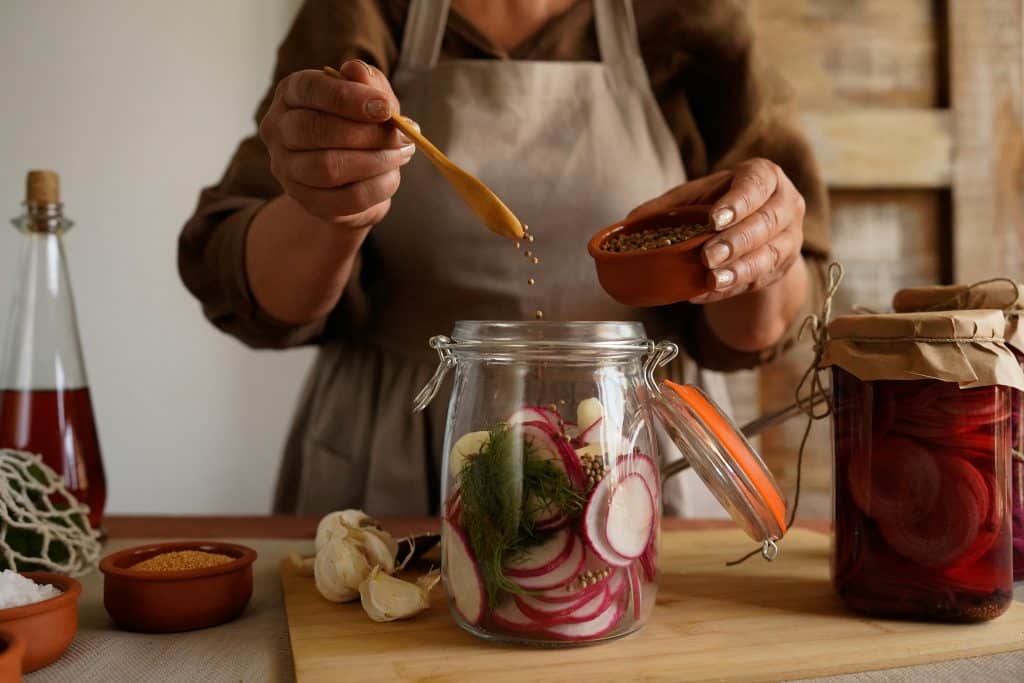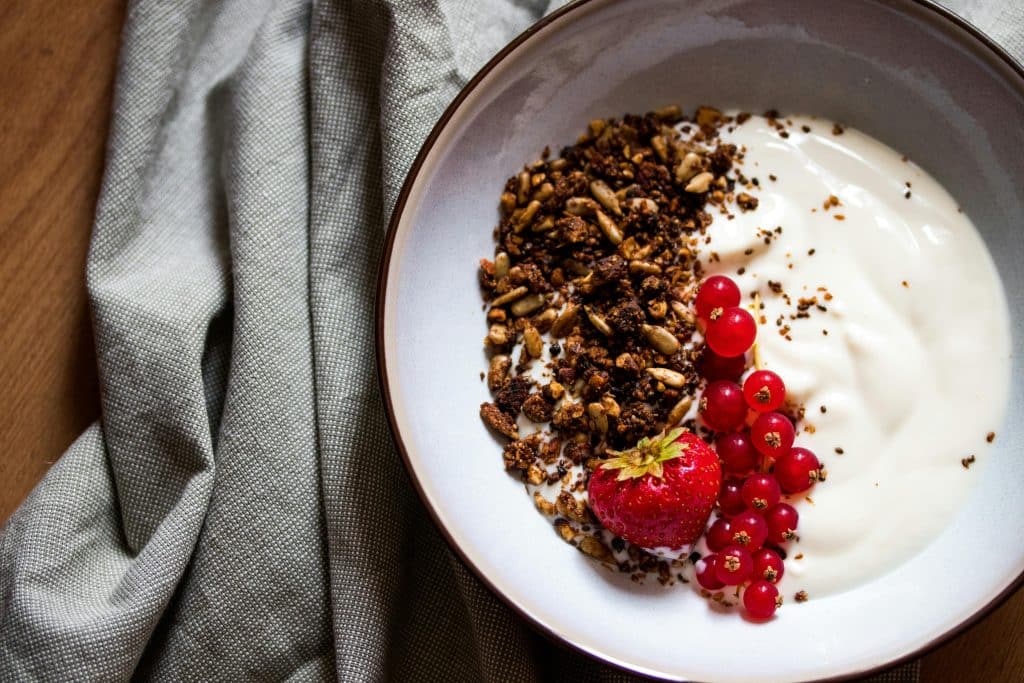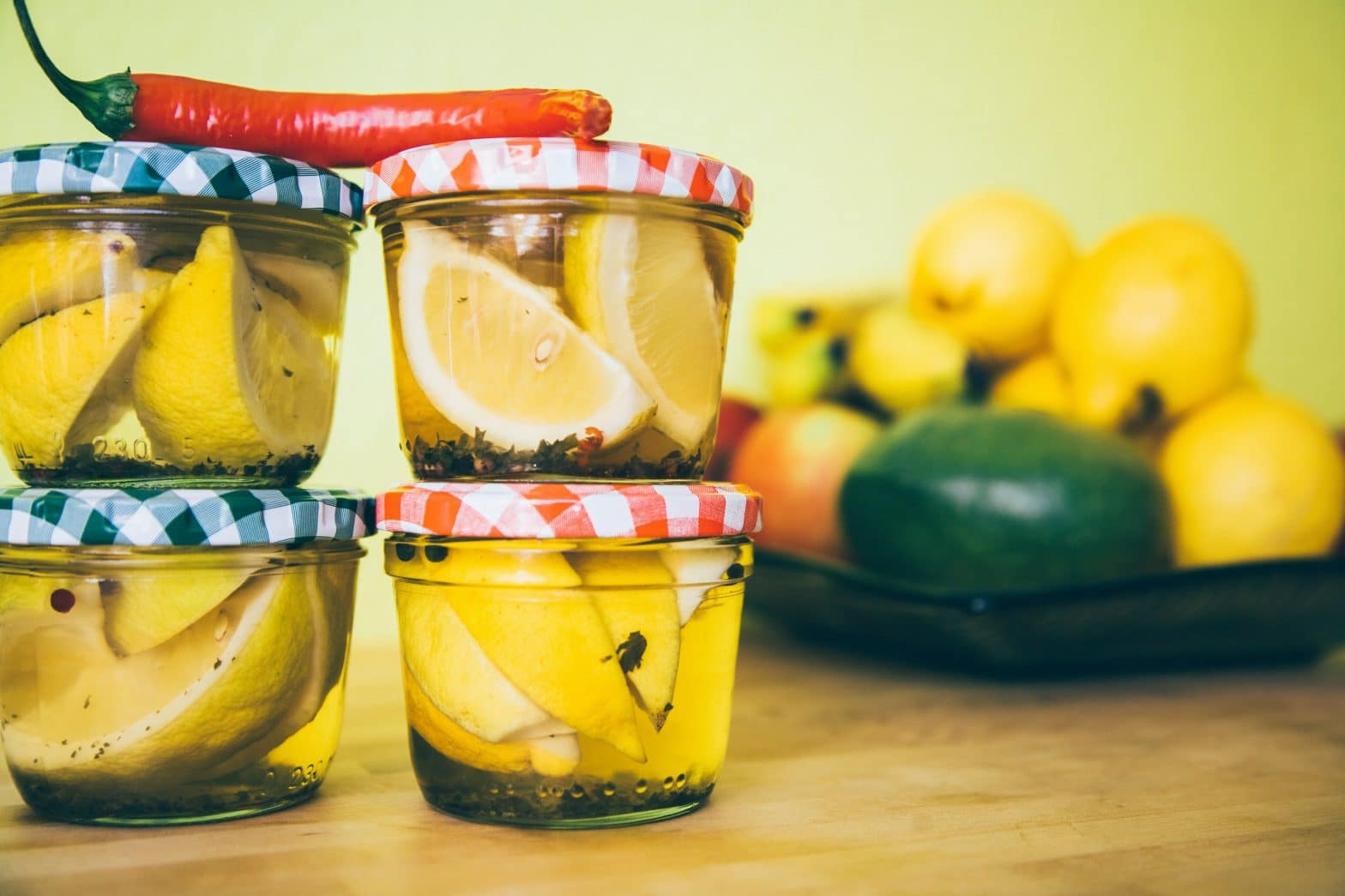Fermentation is a process that has been used by humans for thousands of years to preserve food, improve its taste and texture, and harness its health benefits. Around the world you see many different types of fermented food, from certain cheeses to sauerkraut and soy sauce.
It is likely that fermentation was discovered by accident when early humans stored food in conditions that favoured the growth of beneficial microorganisms such as lactic acid bacteria and yeasts. Ancient civilisations such as Mesopotamia, Egypt and China were fermenting grains and cereals to make bread and beer thousands of years ago.
With technological advances, fermentation has evolved to enable large-scale food production. Today, there is a resurgence of interest in home fermentation, where people are experimenting in their own kitchens, making fermented foods in an artisanal way and exploring their health benefits.

What are fermented foods?
Fermented foods are foods that have undergone a fermentation process in which microorganisms such as bacteria, yeasts and fungi convert compounds in the food into other biologically active substances through biochemical reactions. This process not only affects the taste and texture of the food, but can also have health benefits.
Properties and health benefits
There are many health benefits of fermented foods, and although some are quite complex, we try to explain a little more about what the benefits are and how they work.

Fermented foods improve the digestibility of food. It breaks down nutrients into smaller, bioactive fractions, making food more digestible and nutritious. It also increases the bioavailability of nutrients such as vitamins, minerals and sugars; by making them more bioavailable, they can be absorbed more effectively.
Fermentation produces bioactive compounds. Fermentation produces bioactive compounds such as peptides and amino acids that have health-promoting properties. It boosts the immune system as it contains live microorganisms that are beneficial to our microbiota, helping to restore the balance of bacteria in our body by modulating our immune system. It also reduces the presence of anti-nutrients.
Enzymes from certain bacteria can break down certain anti-nutrients, such as phytic acid, or even break down toxic or unwanted compounds, making them less harmful.Some studies suggest that fermentation can reduce the presence of food allergens, making it a better tolerated food for people with some food sensitivities.
On the other hand, it improves food preservation. Fermentation acts as a natural preservation method by acidifying the medium, creating unfavourable conditions for the growth of harmful bacteria. It improves the flavour and texture of food. It transforms some organoleptic characteristics, resulting in a final product with unique and pleasant flavours.
Examples of fermented foods and their benefits
We can find a wide variety of foods that use fermentation in their production process. As we have seen, they are all probiotics and including them in our daily diet is healthy for our organism. Here are a few examples:
- Yoghurt: a product made from fermented milk with lactic bacteria such as Lactobacillus bulgaricus and Streptococcus thermophilus, an excellent source of probiotics and calcium.

- Kefir: Made by fermenting milk and kefir grains. These grains contain bacteria and yeasts that live in the same ecosystem. Kefir is an excellent source of probiotics and calcium.
- Cheese: Many cheeses undergo a fermentation process in which lactic acid bacteria and enzymes break down milk components to produce different textures and flavours.

- Sourdough bread: Breads that use sourdough as a leavening agent instead of commercial yeast. This mixture is a traditional natural culture of yeast and bacteria, flour and water. The fermentation process makes the bread much more digestible and a good source of starch.
- Sauerkraut: is a fermented food consisting of finely chopped cabbage fermented in salt with 1.5-2% by weight of cabbage. It is a very typical dish in German cuisine, although it is becoming increasingly popular in other regions of Europe.

- Vinegar: Acidic liquid produced by the alcoholic and acetic fermentation of various sugar sources, such as fruits, grains or even wine, cider or beer. It can have antimicrobial properties and is used in cooking and food preservation.
- Pickles are foods that have been soaked in a liquid solution of vinegar, salt and sometimes sugar and left to stand until they develop a sour taste. This process imparts a distinctive flavour but also acts as a method of preserving food. They can be made with the familiar cucumbers, but also with: carrots, onions, cauliflower, peppers, radishes, garlic, beetroot, ginger… and even combined with selected spices and herbs according to personal preference.
- Tamari and soy sauce: These are fermented sauces made from soybeans and other grains that are very popular in Asian cuisine, especially Japanese and Chinese. Both are valued for their umami flavour, which adds a distinctive flavour to dishes.

Want to learn more about healthy eating or take on a challenge to eat healthier and move more? Check out our telemedicine services available to all our clients. You can talk to our doctors or mental coaches or start the Get Fit program at no extra cost! The mobile application is also available for download.




